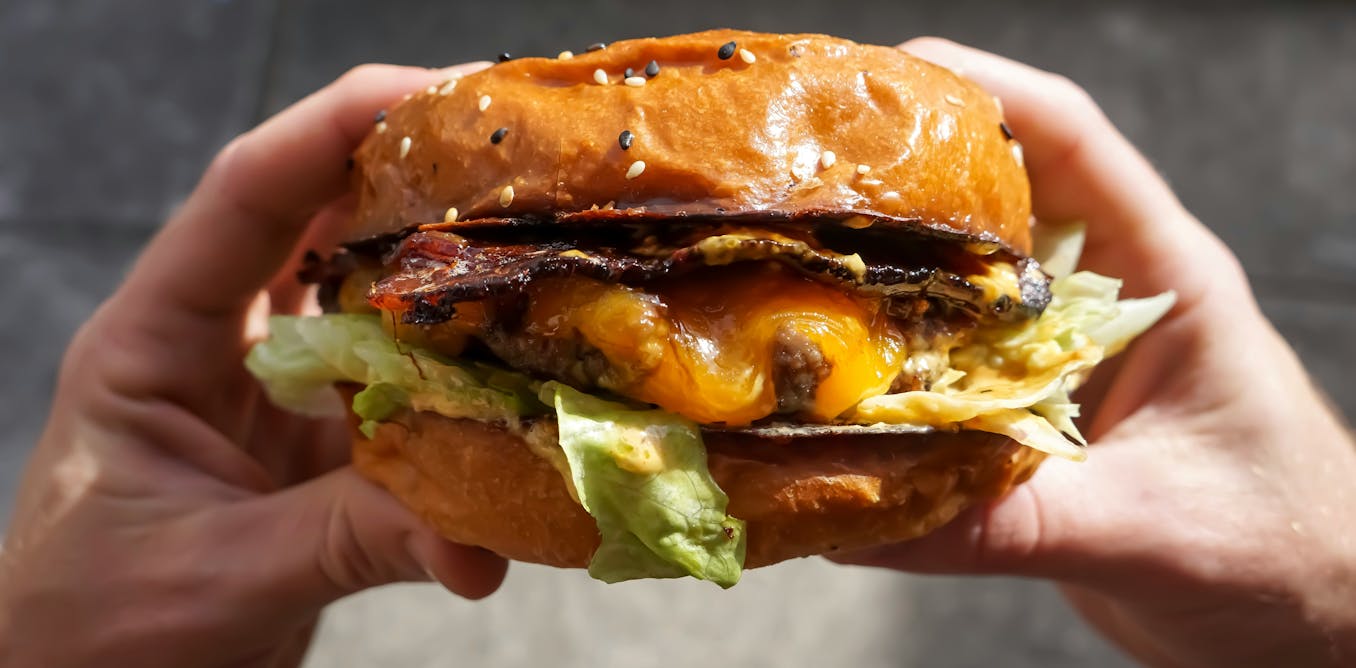The Truth About Seed Oils: Separating Science From Hype
In recent years, seed oils like canola and sunflower oil, once deemed heart-healthy staples in kitchens, have come under scrutiny. This wave of skepticism, largely fueled by health influencers advocating for alternatives such as beef tallow, poses an essential question: Are seed oils really as detrimental to health as some critics claim? Business Insider’s latest deep dive, "The Truth About Seed Oils: Separating Science From Hype," examines this contentious debate to uncover the science.
The journey into this topic begins with a historical perspective on seed oils. These oils became prevalent in the 20th century, largely due to advancements in extraction and refining technologies, and were quickly touted for their beneficial effects on heart health. However, as the production methods became more industrialized, concerns arose about their nutritional value and potential health impacts.
Understanding how cooking oils are made is crucial in deciphering their health implications. The refinement process often involves high heat and chemical extraction, stripping away many beneficial nutrients. As the video explores, this can lead to the production of oils laden with omega-6 fatty acids, which have become a focal point in the discussion of dietary fats.
A critical aspect of the conversation revolves around the balance of omega-6 and omega-3 fatty acids in the typical diet. Many health experts argue that a disproportionate intake of omega-6s, often found in seed oils, can promote inflammation and other health issues. This imbalance underscores the importance of diet composition and the role that cooking oils play in our overall health.
The video also outlines specific seed oils commonly used in cooking and their perceived shortcomings. Critics highlight concerns about the long-term health effects of consuming these ultra-processed oils, contrasting them with more traditional fats like beef tallow, which has been praised for its natural sourcing and supposed health benefits associated with saturated fats.
As the examination continues, the video delves into how heating oils during refinement can produce harmful compounds. This raises questions about not just the type of oil consumed but also how it is prepared and used in cooking. Brands are increasingly responding to consumer demand for transparency, with some opting to eliminate seed oils from their product lines in favor of alternatives deemed more health-conscious.
Furthermore, the relationship between seed oils and the economy is addressed—many food manufacturers rely heavily on these oils due to their low cost and high shelf stability, making them a staple in ultra-processed foods. However, this reliance can perpetuate the consumption of less healthy options.
The comparison of various cooking fats—seed oils, beef tallow, and olive oil—sheds light on the nutritional profiles and practical uses of each. The video offers insights into which oils might be best for consumers looking to make healthier choices, while debunking myths perpetuated by both sides of the debate.
In conclusion, "The Truth About Seed Oils" provides a nuanced understanding of a complex topic. While the conversation surrounding seed oils continues to evolve, viewers are encouraged to consider the science behind their choices in cooking fats, fostering informed decisions in an age of health misinformation. As the culinary landscape shifts, one thing remains clear: a critical examination of what we consume can lead to better health outcomes and a more conscious approach to cooking.
Watch the video by Business Insider
Video “The Truth About Seed Oils: Separating Science From Hype | Ultra-Processed Life | Business Insider” was uploaded on 06/10/2025 to Youtube Channel Business Insider




































So what you are telling me is that …fried food is good for for you?
Great breakdown of the seed‑oil debate — finally seeing real science distinguish hype from fact!
Given that she used ultra processed foods to illustrate ingredient labels, I wouldn’t trust any of that misinformation.
The only thing I wanted to hear about was how to minimize carcinogen production when using seed oils for frying and deep frying. This wasn't really covered. She just said "can produce carcinogens with repeated heating and cooling." I also don't buy that oils with a low smoke point, e.g. virgin or cold pressed oils, aren't creating carcinogenic products during pan frying. At the least, we should be encouraged to use oils with a higher smoke point to avoid or reduce these issues, right? I'm not expert I just want to understand.
This is all pointless nonsense, both are not great. This whole agenda is just about eating up more Live Stock resources. It's just Materialistic Accelerationism. Obviously animal fat is much more COSTLY than Plant Seed Oils. That's the entire purpose. To BANKURPT You.
Wow this is awfully similar to the video essay Adam Ragusea posted like a week ago…
im no expert but.. i dont think saturated fats cause heart problems. especially if its coming from a natural source such as tallow/gee
Despite being a thorough and well run report, there are clear grey zones that need to be included. The heat used to produce seed oils (depending on the type – not all) kills the very delicate omega-6/3 fatty acids. Yes, it's talked about in this video but it misses the point of how delicate these acids are. You don't need 'multiple rounds of heat treatement' to damage something delicate.
And if not, then you heating the oil for frying will kill them. Omega 3 & 6 are EXTREMELY temperature sensitive. That's why you have to store a flaxseed oil bottle in the fridge at 4 degrees celsius or less once opened. Definitely not in a plastic peanut-butter container like shown in this video. These acids oxidate like crazy. Oxidation in our body means release of free radicals which = inflammation. It's the same for these oils. So your intake of them = additional inflammation, whether you want it or not. The imbalance of 3-6, as reported here, is not entirely accurate therefore as it doesn't take into account the poor production quality of these oils & the heat treatment undergone when you use them.
Finally these oils are stored in transparent, plastic containers – again, prone to oxidation due to heat/sunlight (+ likely plastic contamination). Extra virgin olive oil is sold in dark glass bottles (or metal boxes) for a reason!
There are always caveats and conditions. But great point about your additional, indirect intake of omega6s through animals that are fed poor, inflammatory food themselves.
Last 2 things:
1 – if your extra vergin olive oil is smoking then it's BURNING! Forget ventilation mentioned here! It's as bad as any other oxidating seed oil! Use EVOO raw on top of ready food (steak) or to soften your starter veggies in a pan at medium heat (onions,garlic, zucchini etc). DO NOT deep fry or sear with EVOO -> ghee or avocado oil instead!
2 – doctors recommend seed oils because of the saturated fat in animals. But your regular family doctor in America DOES NOT undertake any kind nutrition course in their academic years in medicine. So this recommendation is half valid in my opinion. And this comes from an american doctor himself (how not to die – Michael Greger)
Yeah sur I am going to trust a big business promotion channel on health and nutrition XD
Wow, she advises replacing butter with SEED OILS – stay away from this kick-back channel.
I switched to tallow, coconut oil, red palm oil and ghee whenever I could.
I have seen significant improvements with inflammatory biomarkers.
Also, include higher meat based protein and ended the vegan myth to scare me.
we though they were made from vegetables ha ha ha
how stupit is this women
This is propaganda! If its ultra processed then its not good for you…. end of story!
rfk jr said so? yeah it's the big meat marketing then
rfk jr said so? yeah it's the big meat marketing then
Whatever 🤡 RFKJ is sayin Ill do the opposite thank you
I really don't understand how these seed oil benefits heart health. Foam cells are the cause of plaque in the arteries which is an adverse byproduct of excess glucose in the blood. I don't totally agree with these video facts.
"…for use in…..cocaine"??
Ah, I had set the speed to 1.5, so "cock'in" turned into "cocaine":
M
McDonald food is the only fast food that I really can’t eat because of the same reason. I’m allergic to to those seeds, it’s very bad for me.
"Saturated fats clog up your arteries and cause cholestrol problem"🤣🤣🤣This shit just refuses to die. How is this woman qualified to be "health editor"?
Why not use chicken fat ?
Half of this info is about 20 years old.
It seems like this woman intends to eat and drink only oils? Then what she is saying might be correct. How about when you eat these seed oils with starches and other sugars? How about when you heat up that oil for the 10th time?
As high a carbohydrate diet Americans have, they really shouldn't have any oils.
Nowhere in this video did she mention that ALL SEED OILS ARE RANCID. They add perfume so it's tolerable to use in food.
Avocado and olive oil(she didn't mention any other oils like coconut?) are most likely the best option as well as grass-fed beef tallow.
I've never seed avocado or olive oil in plastic bottles? There's another reason to not use seed oils, or at least get them in a glass bottle.
Take note and look up RED Palm Oil; it is different than the other palm oil.
NOTICE THIS:
In the bloopers, she gets in many jabbs against beef tallow.
You have a bias, I can clearly see it! When it comes to health there should be no bias!
yes, advertise for mcdonalds
Still pushing seed oils? Who sponsored this video?
Paid promotion 😂
Disappointing to see your source, RFK Jr. Makes the entire video sus as hell.
You are wrong about saturated fats. To know about this is literally your job. Unsubscribed.
Seed oil is not the problem, processed seed oil is. That is what they are saying.
Why no mention of coconut oil?
When it comes to food information, I really shouldn't take anything from the states seriously, but please keep it there, like the gluten nonsense, we have that here in Europe too now. Ofcourse tallow is gluten-free, why tf put that on everything? And most people can eat it.
😂😂😂😂 beef tallow is even worse when the cow is fed gmo corn and injected with antibiotics so plz if u want beef tallow visit the amish for thw good stuff😂😂😂😂…
Seed oils no worse for you than beef tallow so why should I get crappier fries?
The lady is basically saying that playing with nuclear material is actually healthy. It is like she points out that "they use gamma rays for treating cancer and X-ray machines, so go ahead, play around with a plutonium core (while smiling)". At 5:57, she mentions that seed oils increase the risk of inflammation—while smiling and "inflammation is good for you". If your diet is high in seed oils and constantly contributes to chronic inflammation, your risk of cancer increases. Antioxidants, on the other hand, reduce inflammation and improve health—which is why we prefer them. Seed oil companies aggressivel fighting back back, just to create doubt. Listen to her at your own risk.
That's a whole lot of oil you use in a day…
conveniently didnt mentioned palm oil, a healthy cheap fruit oil.. wonder why ?
Groundnut oil?
I like cooking with animal fats. That’s my choice. The French out butter everything and don’t have the cardiovascular issues that we Americans have
What If saturated fat only appears bad because we're eating seed oils with them?
Your video is similar to the studies about harmful compounds in cigarettes which have been hidden until the 90's.
Business destroys and hides real information from consumers to increase profits regardless of effect on people.
Stupid unnerving background music, please get rid of it